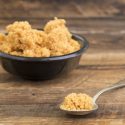20 Evidence-Based Benefits of Saffron
While your spice cabinet or drawer may not seem like the place to go looking for health benefits, in the case of saffron, you would be wrong.
This potent spice has many distinct advantages for your health that go beyond its ability to flavor food.
In fact, taking saffron supplements can help to improve your heart and brain health, protect you from oxidative stress and keep you free of cancer and other harmful diseases.
If you want to enjoy better energy and immunity, consider this supplement.
We will share all the significant benefits of this exotic spice, including how to take it to improve your health.
Understanding Saffron
As one of the most prized and valuable spices, saffron holds a special place in the history of herbal medicine.
This spice, which comes from the Crocus sativus plant, is sometimes called the golden spice or Za’faran, which is the Arabic word for yellow.
While the fine threads of saffron are red, it imparts a yellow tinge to anything it touches, thus giving it its name.
This spice has been used for thousands of years to add flavor to foods and to provide coloring for dyes, paints and cosmetics.
Nearly all the world’s supply of saffron is now grown in Iran.
Saffron is derived fromthe thread-like stigmas of the crocus flower that are collected and dried (1).
The chemical compounds in this spice have historically been recognized for their powerful abilities to improve health.
It has long been a part of herbal and traditional forms of medication.
The most common uses in its early days were for pain, cramps, asthma, congestion and stress.
We now know much more about the chemicals found in this plant and how they can benefit your health.
If you were to look at the nutritional profile of saffron, it would not seem to be an exceptionally nutritious plant.
One tablespoon of the spice, for example, has just 1.37 grams of carbohydrates and less than one gram each of fats or proteins.
It has small amounts of Vitamin C, many of the B vitamins as well as several minerals.
It is highest in potassium, phosphorous, magnesium, and kaempferol, with smaller amounts of iron, manganese and copper.
However, it is not just the nutrients in saffron that are important.
This spice also contains over 150 compounds that make it extremely beneficial for your health.
Among the most important of these are carotenoids known as safranal, crocin and picrocrocin (2).
Safranal, for example, is a natural compound known to stimulate beta-2 receptors that affect heart rate and blood flow (3).
It can also block histamine and acetylcholine activity.
This compound even stimulates GABA reception in the brain, giving it the ability to relieve anxiety (4).
We share many more of the health benefits to this compound below.
The compounds in saffron include many powerful antioxidants, as well as those with antimicrobial properties.
Combined, they create a spice that can protect your heart and brain, while helping you treat many diseases and maintain better health (5).
Saffron Dosage
The most effective dosage for saffron is well above the amount you would consume in foods.
Therefore, you may choose to take a saffron supplement or to purchase products that contain saffron.
You can now find saffron in many different products, including creams and ointments, teas, and more traditional supplements, like tablets and capsules.
There is little regulation of the potency or active compounds found in the various formulations of these products.
Therefore, your benefits may vary by the product you chose.
Read each label carefully and follow its recommended dosage (6).
Saffron can be safely taken up to twice per day in doses up to 50 milligrams per dose.
You should not exceed 1,500 milligrams in one day.
While rare, extremely large doses of this supplement can cause death from toxicity.
Saffron’s Health Benefits
Due to its wide range of health and therapeutic benefits, saffron is gaining in notoriety and use.
It is now known to help reduce anxiety, promote a healthier heart and brain and to provide support for diabetes and other chronic illnesses.
Nearly all the health benefits of this spice stem from its high concentration of antioxidants and their ability to promote health within the body.
Because saffron has so many different chemical compounds, it is not always clear which is responsible for which health benefit.
However, researchers are still learning more about this supplement’s advantages for human health.
We explore many of these benefits below.
A Potent Antioxidant
As an antioxidant, saffron has the ability to protect the body from oxidative stress and fight the effects of free radical damage.
In a 1998 study, using saffron every day protected participants from oxidative stress (7).
The compounds in this spice can effectively lower inflammation, while blocking damage from free radicals and raising the level of naturally produced antioxidant proteins (8).
As an antioxidant, saffron can help slow the effects of gain and protect our skin and other tissues from damage that can lead to many different degenerative and chronic disorders.
Saffron is so powerful that it is often used in skin care lotions and sunscreens, because it can protect the skin from damage (9).
Neuroprotective Benefits
This spice can also help to protect your brain and nervous system from various diseases and conditions.
By lowering inflammation, protecting against oxidative stress damage and regulating neurotransmitter production, saffron can prevent the death of neurons while protecting your brain from injury (10).
One of the most important of these protective abilities includes inhibiting the buildup of amyloid proteins in the brain, which is the leading cause of Alzheimer’s disease (11).
By reducing this plaque formation, saffron can help improve the symptoms of various forms of dementia (12, 13), by blocking the deposit of these naturally-occurring proteins (14).
The mechanism which allows this to happen is not fully understood, but researchers believe that saffron may block a specific enzyme which breaks down acetylcholine.
When levels of acetylcholine are higher, it protects your brain from damage (15).
In one clinical trial, using saffron was shown to be as effective as the leading Alzheimer’s medication, in improving some symptoms of dementia (16).
Boosts Mood
The crocin found in saffron gets converted into crocetin, which can boost levels of serotonin in the brain, relieving anxiety and depression (17).
This compound can also help to raises levels of both norepinephrine as well as dopamine (18), which also helps to enhance mood and lower symptoms of depression and anxiety.
A 2013 metanalysis on saffron extract found that it can reduce these mood disorder symptoms effectively (19).
It has been shown to help treat postpartum depression better than a leading antidepressant medication (20), to improve symptoms of schizophrenia (22), and help improve mood and anxiety in those with a generalized anxiety disorder (23).
Lowers Inflammation
Another significant effect of saffron is its ability to reduce inflammation, by lowering the inflammatory proteins that cause this immune system response.
These same compounds also decrease the activity of molecules that cause stress and damage to the cells within your body (24).
This includes blocking syncytin-1 and nitric oxide from damaging brain cells (25) while also preventing the production of TNF-alpha and interleukin-6, which produce the inflammatory response (26).
Enhances Heart Function
The antioxidant properties of saffron can also improve heart health.
By increasing the capacity of the heart to pump blood (27), saffron can lower your risk for coronary heart disease and heart attack (28).
It also has been shown to be effective at treating heart disease, by reducing cholesterol and combatting atherosclerosis, a leading cause of heart problems (29).
Saffron can also help your heart by lowering blood pressure, which is a risk factor for heart disease.
In multiple clinical (30, 31) and animal trials (32, 33), the compounds in this supplement have been shown to lower blood pressure, including in those with hypertension.
Boosts Immune System Function
Taking saffron supplements could help improve your immunity, by boosting the production of white blood cells, which help to fight disease.
In a 2011 study, participants had a significantly higher count of white blood cells, while other types of blood cells were unaffected (34).
This means saffron that supports disease fighting, without leading to other problems related to blood levels.
This spice also helps inhibit the replication of viruses, as well as their ability to enter cells.
This lowers your risk of infection (35).
Treats Sexual Dysfunction
Both women and men can enjoy improvements in sexual drive and overall sexual function from taking saffron supplements.
Several factors can cause sexual dysfunction, and saffron has been shown to help treat problems caused by medications, as well as erectile dysfunction (ED).
In men with ED, saffron increased both the duration and frequency of their erections (36), including men who had diabetes (37).
Women taking antidepressants often have a reduced sex drive or experience pain with sex, and saffron can help to reduce or eliminate these symptoms (38).
Heals Wounds
As a natural antioxidant and anti-inflammatory, saffron can help to treat burns (39).
Extract of this spice has been shown to increase the production of the vascular endothelial growth factor (VEGF), which plays a role in wound healing.
This extract also reduces the production of inflammatory proteins, which can result in less pain around the wound (40).
Boosts Performance and Energy Levels
Athletes may enjoy a boost of energy and strength from taking saffron supplements.
The carotenoids in this spice improve blood flow and oxygen delivery, while increasing energy production at the cellular level (41).
In one study, supplementation led to improved reaction times and muscle strength, by boosting the function of the mitochondria within the cells.
Treats PMS
Saffron has been used to help treat PMS almost since the inception of its use in herbal medicine.
Women who smelled saffron for only 20 minutes saw a significant reduction in their PMS symptoms, while also noticing more regular cycles (42).
It is believed that saffron can reduce cortisol levels, which is a stress hormone which plays a role in PMS symptoms.
In trials using saffron supplements, similar improvements were also noted (43).
By lowering inflammation, relieving pain and regulating hormones, this spice can help treat PMS effectively.
Relieves Pain
Certain types of pain do not respond well to conventional pain management.
This includes neuropathic pain, which is caused by nerve damage that results from certain types of chronic disorders.
Some of the leading causes of neuropathy are diabetes and fibromyalgia.
This type of nerve damage causes tingling, numbness, pain and sensitivity that are difficult to treat with pain relievers.
Animal trials have shown some success in relieving pain from neuropathy using saffron supplements (44).
In animal trials where opioids were no longer useful or feasible, saffron also provided pain relief (45).
While additional research is needed to determine applications for human pain and neuropathy, this research is promising.
Helps Treat Cancer
In both cell studies and animal trials, saffron has shown promise in providing anti-cancer support against several types of cancer, including cervical, ovarian, prostate, breast, skin and pancreatic, among others.
In these trials, the crocin found in saffron seems to be the primary active compound in combatting cancer cells (46).
When crocin is converted in the body into crocetin, this compound can effectively target pathogens like cancer cells to eliminate them, while leaving healthy cells untouched.
The result is increased cell death in these cancer cells, because crocetin blocks the production of the proteins necessary for cancer cell growth.
More research is needed on humans to determine the full effects and implications of this application.
Treats Airway Inflammation
Those with asthma also benefited from taking saffron supplements, which can successfully reduce the spasms and airway inflammation that lead to asthma attacks.
In animal trials, extract of this spice reduced asthma symptoms (47), by relaxing the smooth muscles of the lungs (48).
When we learn more about which compounds are most effective for producing this effect and how it will influence humans with asthma, saffron could become an alternative treatment for the disease.
Improves Digestive System Health
When the acid inside the stomach damages the lining of this vital organ, you can end up with a gastric ulcer, which is a sore that can become aggravated and inflamed.
By lowering oxidative stress and improving the concentration of antioxidants in the stomach, saffron was able to protect the stomach lining from damage caused by excess acid (49).
When taken regularly, this supplement could protect the delicate stomach lining from ulcers brought on by excess stress or inflammation, such as from chronic allergies (50).
Boosts Weight Loss
If you are trying to lose weight, saffron may be able to help.
By reducing appetite and snacking, it was shown to be effective at helping one group of women lose weight (51), while also showing promise from lowering cholesterol levels, which plays a vital role in your health (52).
By reducing fat levels (68) and helping lower caloric intake, this supplement could be added to other weight loss efforts to improve your results.
Promotes Strong, Healthy Bones
During and after menopause, women lose essential hormones, such as estrogen, that help keep bones healthy and strong throughout your younger life.
This makes older women more susceptible to osteoporosis and arthritis (53).
By reducing cortisol levels while also increasing levels of estrogen, saffron may be able to keep bones healthy, even after menopause.
In animal trials, this spice extract prevented the progression of osteoporosis (54).
Enhances Liver Health
Saffron could provide protective benefits for the liver in several ways.
As an antioxidant, it protects your cells from oxidative stress.
This supplement also blocks the enzymes that can produce toxic byproducts in the liver (55).
In animal trials, saffron lowered the presence of poisonous proteins, as well as fat deposits in the liver.
This can help to keep this crucial organ working effectively.
This includes helping protect your liver from damage caused by certain drugs or medications (56).
May Treat Diabetes
When your cells cannot utilize all the glucose in your system or will not allow insulin to enter their walls, you can end up with high glucose levels and, eventually, diabetes.
When saffron is taking with insulin, it enhances insulin activity and cell responsiveness to this hormone (57).
Saffron may also help increase the uptake of glucose during exercise, leading to lower blood sugar levels (58).
Improves Blood Flow to Eyes
Sufficient blood supply to the eye is crucial for preventing the degeneration of these critical organs.
By dilating eye blood vessels and boosting blood supply, saffron can help slow age-related vision degeneration, while also protecting your overall vision (59).
Treats Epilepsy
Another long-time application for saffron is as an anticonvulsant.
It is effective at preventing seizures.
This benefit has been noted in animal trials, as well as anecdotal evidence (60).
Higher doses, above 400 milligrams, are needed for this effect to be reliable, so there is some danger of toxicity if taken for extended periods.
Animal trials indicate that safranal is the active compound in suppressing seizures (61).
Precautions and Interactions
For most people, saffron is very safe to take regularly in supplement form.
Side effects are rare, but minor issues have been noted in a few cases.
The most common of the adverse reactions include dizziness, drowsiness, nausea, headache, a change in appetite, dry mouth and anxiety (62).
While some research indicates that saffron may help to improve the readiness of the cervix for labor and delivery (63) or to improve the maturation of eggs to improve the chances of in vitro fertilization (64), there is additional evidence that saffron may not be safe during pregnancy.
For example, pregnant women working in saffron fields are more likely to have miscarriages (65), and there is a link between saffron and spontaneous uterine bleeding (66).
Therefore, because saffron use has not been thoroughly studied during pregnancy, you should talk with your doctor before using this supplement during pregnancy.
There is some risk that the compounds in saffron can cause problems for both the mother and fetus (67).
You may have an allergic reaction to saffron, which can result in trouble breathing, congestion or hives.
If you notice any of these conditions, stop taking this supplement and see your doctor.
If you take saffron for extended periods, you could suffer from a low red blood cell count.
While there has been a great deal of research on saffron, each study may use different parts of the plants.
This makes it difficult to draw conclusions about the supplemental forms of this spice.
Much of this research has taken place in the Middle East on populations that may be genetically different from the rest of the world’s population.
Therefore, more extensive generalizations should be made with caution.
When you cook with saffron, the heat can break down some of the most important chemical compounds, reducing their benefits for your health.
Saffron supplements are safe to take with nearly all types of medications, except one.
If you take an SSRI medicine for depression, talk with your doctor about taking saffron.
This spice affects the reuptake of serotonin, so that it can pose a serious health risk to those taking this type of drug.
Final Thoughts
Because it is so rich in antioxidants, saffron has the power to help improve your mood, sex drive and overall health.
This herbal remedy has been used for thousands of years to prevent seizures, reduce PMS symptoms and help support a healthy heart and mind.
Now that we know more about its constituent compounds, its benefits are even more astounding.
Saffron can help treat depression, anxiety, heart disease, diabetes and epilepsy, while also helping you lose weight and have more energy.
It is widely available in supplement form, and is well-tolerated by most people who take it.
It has very few side effects, which appear only rarely.
It interacts with few medications and is, therefore, a good choice for many who are looking to improve their health.
FDA Compliance
The information on this website has not been evaluated by the Food & Drug Administration or any other medical body. We do not aim to diagnose, treat, cure or prevent any illness or disease. Information is shared for educational purposes only. You must consult your doctor before acting on any content on this website, especially if you are pregnant, nursing, taking medication, or have a medical condition.
HOW WOULD YOU RATE THIS ARTICLE?





